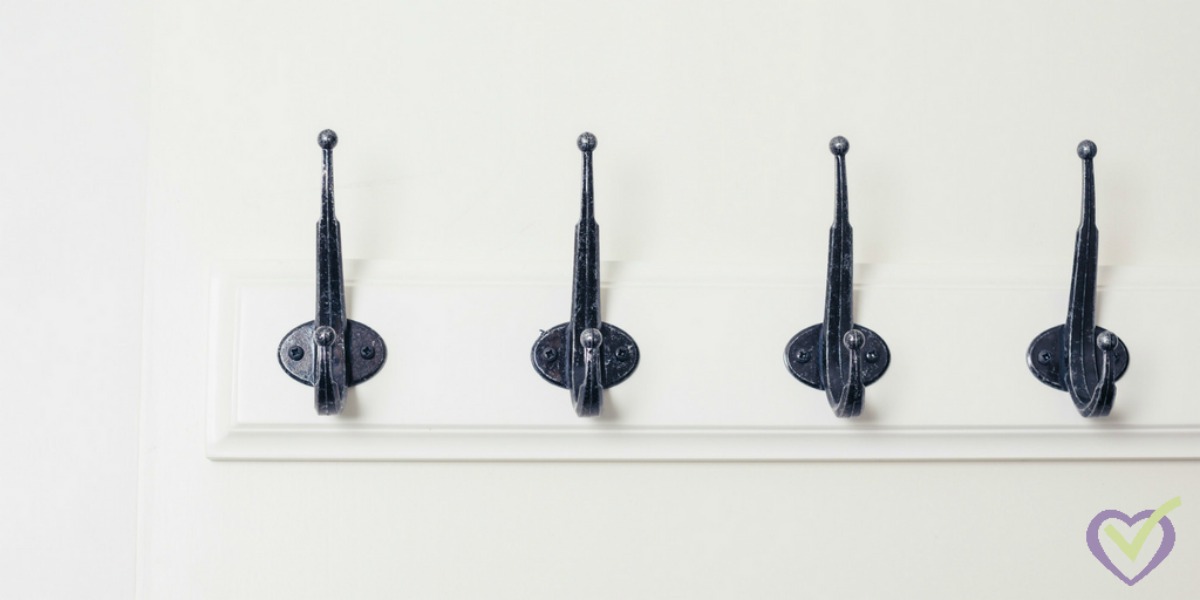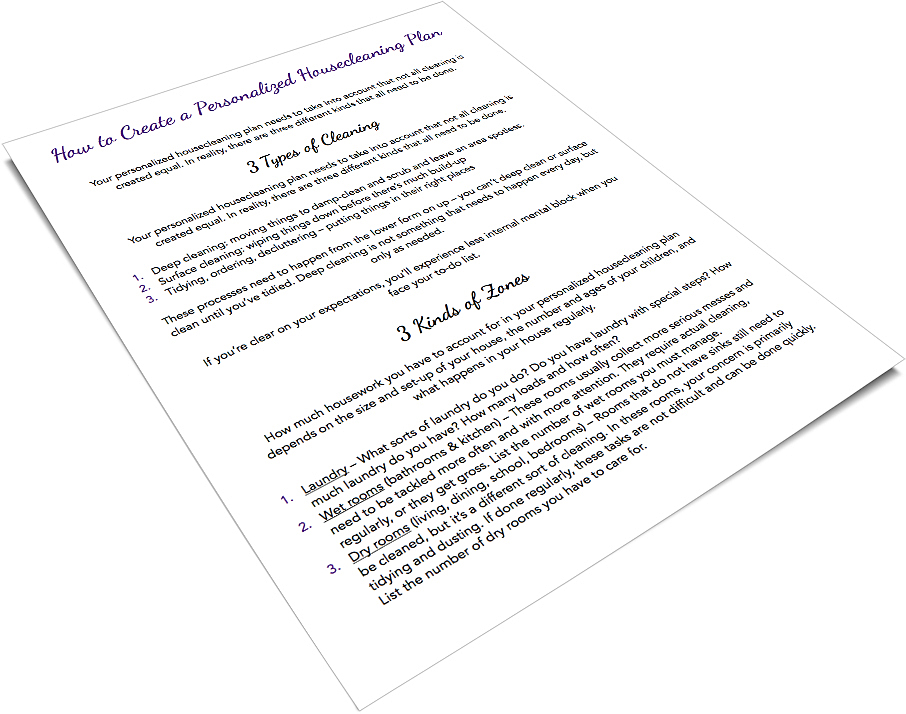Everything has a framework, whether it’s conscious or not.
The government’s framework is the Constitution.
Our education’s framework is made of our core principles.
A computer software framework is the basic functionality before the frills and features.
And our housework needs a framework just as much as anything else we do or use. We need to have an underlying structure that gives shape to our days and support to our sanity.
Without a framework, we’re sloppy, floppy, and choppy. We do this and that, here and there, and never feel like we’re getting anywhere – because we’re not.
So push pause.
Take some time out of the random peppering of chores and give yourself a framework that will make consistency possible.
Hang your habits on hooks.

Scientific research has proven that habits have cues – prompts. One thing happens, whether it’s a hunger pang or a time of day or an emotion or a statement, and that triggers the habit.
So if we want to form habits of housework, we need to attach them to triggers. We need to find pegs in our day that we can hang our habits on.
So instead of thinking in general about what needs to happen at sometime, anytime in a day, choose a time or trigger for the action.
Of course the obvious trigger is a mealtime or time of day, because those are pretty regular. But what about wiping out the sink after brushing your teeth or swishing the toilet after a shower? Whenever you go upstairs you can form the habit of taking something with you to put away.
Think of triggers that are not only time-related, but also action-related.
Your habits will be more successful and stick sooner if you hang them on hooks already in your day.
Think in threes.
Something about the number three is satisfying. Three feels like a complete set. Perhaps this is one way God reveals Himself in nature: we’re compelled and attracted by Three.
Bring it into daily life.
Don’t create a chore list a gazillion items long and think you’re going to them all.
Instead, put them into bundles of three.
After breakfast, do three things. After lunch, do three things. After dinner, do three things. The three things will add up fast. Not only that, but they will stick faster because three feels more manageable and less overwhelming that thirty.
When we feel overwhelmed, we’re likely to never start at all. And, of course, starting is the hardest part.

So make it easier to get started by narrowing down your focus to three things.
Move into maintenance mode.
It’s an easy trap to fall into.
We look at what needs to be done and we just want to get ahead. We want to do all the laundry – feeling, deep down, like we should be able to be so “caught up” that we can stop the laundry, at least for a little while.
News Flash: Laundry will never be done, and as soon as you take a break from laundry, you are behind.
Most household chores are like laundry. Even organization itself is like laundry.
Life takes maintenance.
Maintenance and “getting ahead” are two entirely different modes. Catching up and getting ahead is extra. Maintenance is daily, without fail, repetition.
If you only spend time in “catching up” or “getting ahead” mode around the house, you’ll remain stuck in your boom and bust cycles.

Instead, we need time reserved for those extra tasks that need to happen to move us forward while keeping up at the maintenance level.
Maintenance is not glamorous, and it is repetitive. We need those maintenance routines to make it less likely we fall back into the chaos states.
However, maintenance routines are treading water so that you don’t drown. They are not forward action. They keep you were you are and prevent you from going under.
Whatever the current state of your home, that where the maintenance routines will keep you.
So we need time in both maintenance and “getting ahead” modes, paired together, for lasting change.


Where is the link for the Free Guide: Create a Personalized Housecleaning Plan?
Sorry! Fixed the broken code that was hiding the button. :)